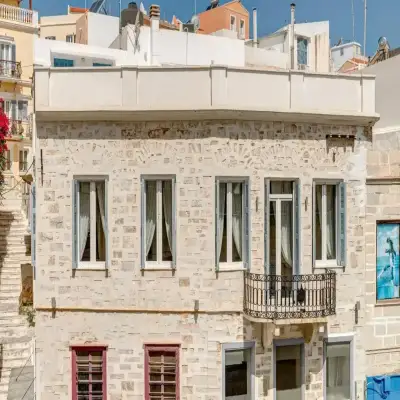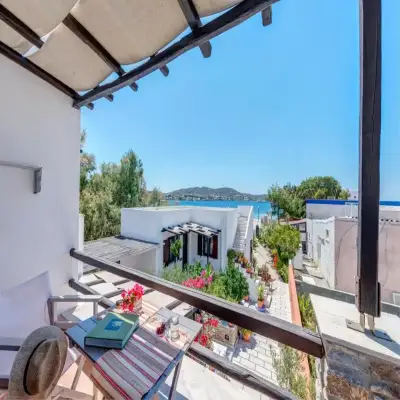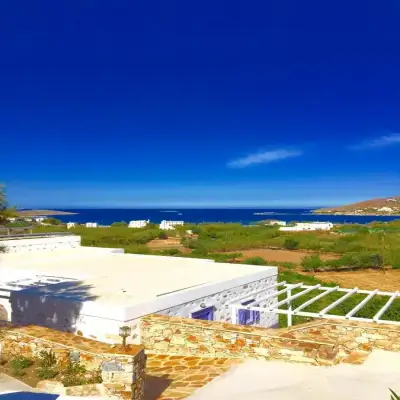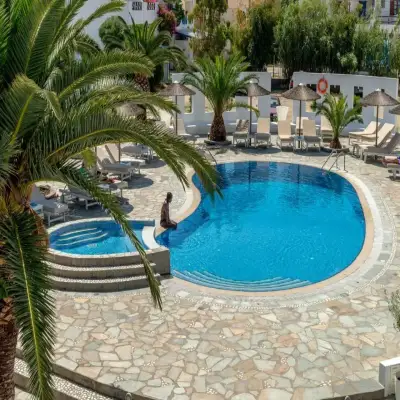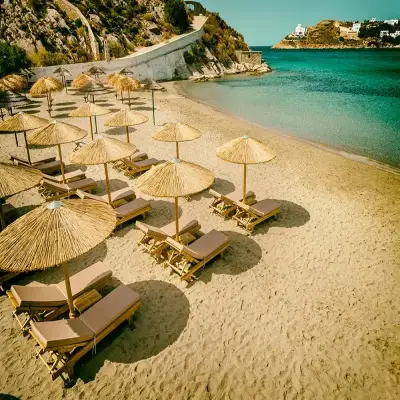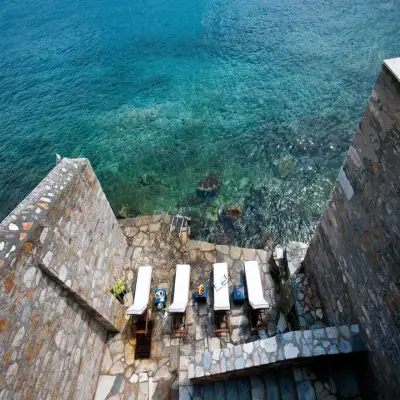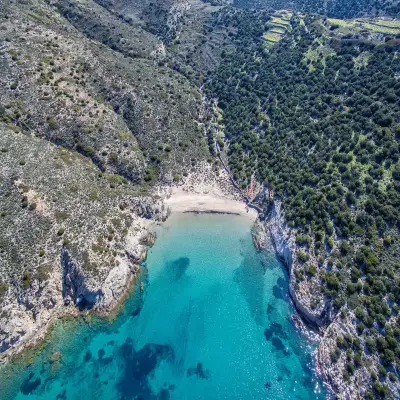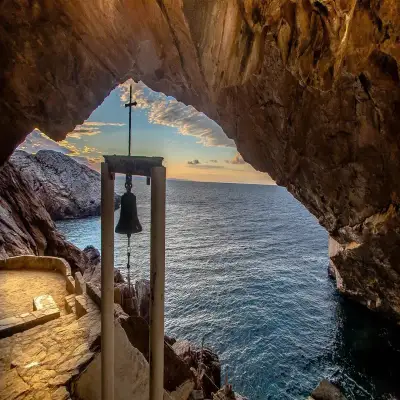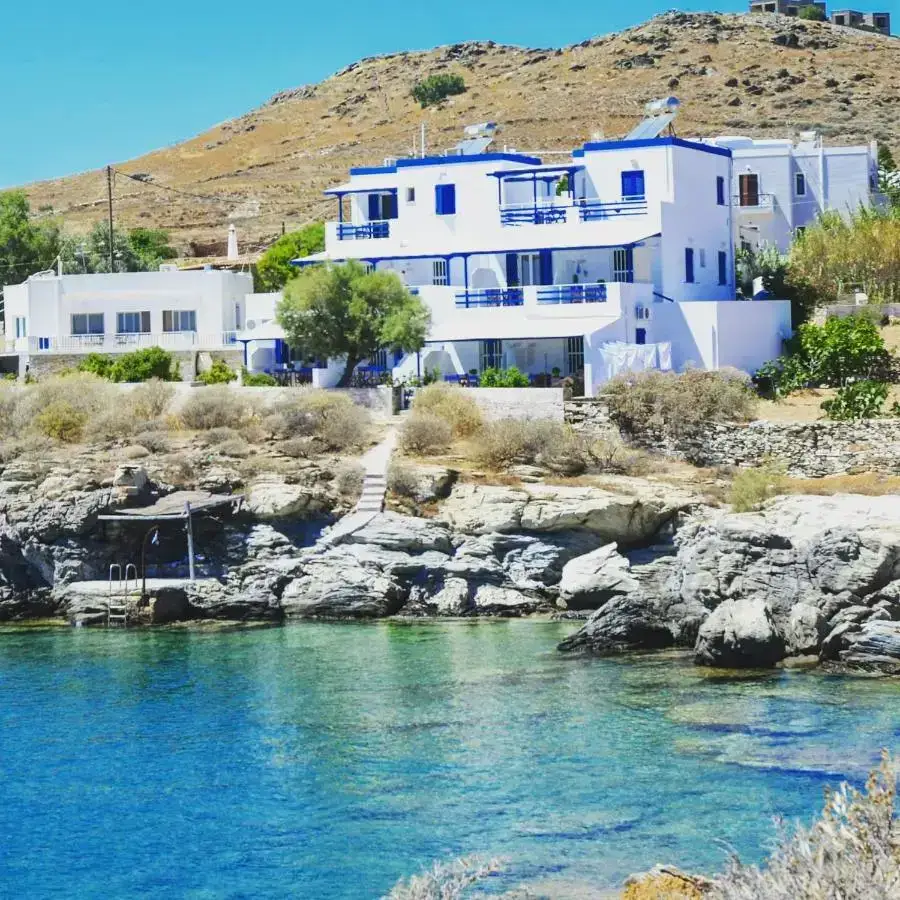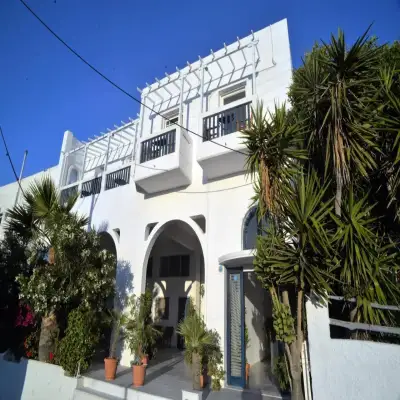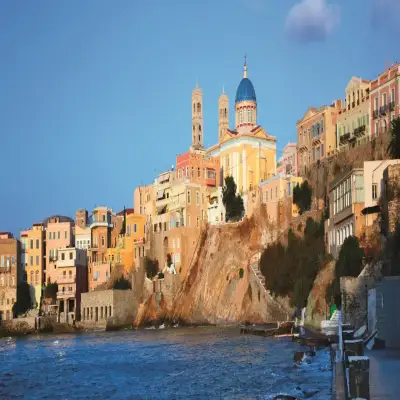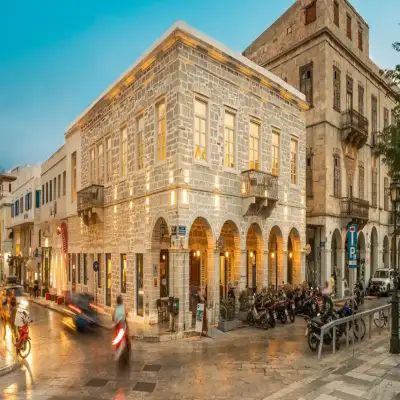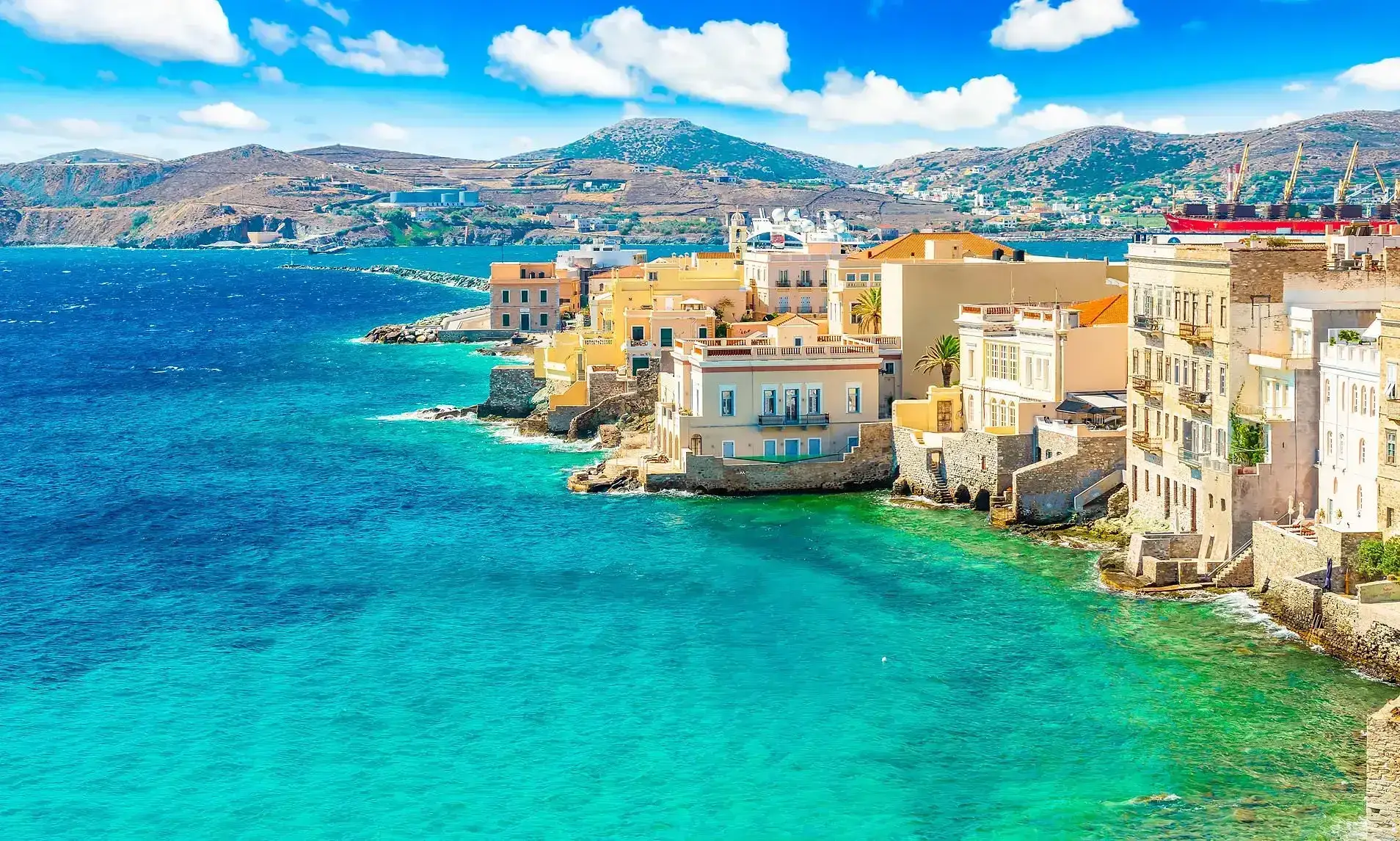
Small & Boutique Hotels in Syros Island
The island of Syros, the capital of the Cyclades in the heart of the Aegean Sea, is one of the rare Greek islands that blends the elegance of the past with the comfort of the present, giving you a true sense of time travel. Siros, where luxury is adorned with courtesy, art and architecture are intertwined with daily life, is the perfect choice for those who want to experience history, culture, gastronomy and sea vacation at the same time.
Places to visit in Syros
It may not be the most touristy of the Greek islands, but that's precisely why it has a real character. Bright white houses, pastel-colored neoclassical mansions, marble squares, church bells, traces of Turkish delight and rebetiko... Syros is an island that does not forget its memories, loyal to its past but open to the future.
Ermoupoli, the capital of Syros, is the administrative center not only of the island but of the whole Cyclades. This port city is an open-air museum with its majestic town hall, large stone-paved squares, art-filled theaters and impressive architecture.
Miaouli Square: Ziller's signature 19th-century town hall is an imposing landmark. Walking here in the evening and mingling with the locals is a unique experience.
Apollo Theater: It was built as a miniature of La Scala in Milan. This building, where history and art are intertwined, still hosts concerts and shows today.
Coastal Road: You can walk along this area full of casinos, customs buildings and shops from the 1830s and watch the sunset.
The Vaporia neighborhood in the upper part of Ermoupoli is full of elegant mansions of 19th century industrial magnates. These houses once hosted receptions and balls and now whisper of Syros' elite past.
Church of Agios Nikolaos: With its gold leaf icons, marble pulpit and details imported from Italy, you'll be mesmerized when you enter. If you are lucky, you may also have the opportunity to listen to the church choir.
Set on a hill directly opposite Ermoupoli, Ano Siros is a typical Cycladic village with narrow stone streets, whitewashed houses and stunning views. But with a difference, this place has a very different identity with its Catholic past and Renaissance touches.
St. George's Cathedral: Located on the summit, this structure looks out over the whole of Syros. The view is spectacular.
Vamvakaris: In this area, you can see the statue of Markos Vamvakaris, the legendary name of Rebetiko, and walk in the places where he was born.
The Most Beautiful Beaches of Syros Island
Syros stands out among the Cyclades for its quiet but refined beaches. You can experience the perfect harmony of sand, sea and tranquility on these beaches:
Galissas: Family-friendly, famous for its golden sandy beach.
Kini: The sunset is beautiful here. The fish taverns are also famous.
Finikas: Good for surfing and water sports.
Delfini: A more isolated bay in touch with nature.
Posidonia (Dellagratsia): With its elegant villas and aristocratic atmosphere, it was once a favorite of the rich.
Siros Island Delight and Dessert Culture
Syros is an island famous throughout Greece for its Turkish delight (loukoumi). Especially the ones flavored with rose water, almond and mastika (mastic gum) are very popular. Turkish delights are not like ordinary sweets, they are a part of everyday life. They are served with coffee, given as gifts and indispensable for conversations. Trump halva is also a must-taste.
Note: If you want to shop, there are plenty of small shops selling traditional products in Ermoupoli. Handmade soaps, natural cosmetics and olive oil products are of high quality.
Syros Island Culture & History Routes
Museum of Industry: This museum is the perfect place to see that Syros was not just an island but an industrial center in the 19th century. The exhibits on shipbuilding, textiles and craftsmanship are impressive.
Easter in Syros: If you are on the island during Easter, you will have a completely different experience. Especially on Good Friday, Ermoupoli's houses decorated with lights and church processions will take you on an emotional journey.
Grammata Bay & Gray Cave: Grammata means “writings” and this bay has ancient inscriptions carved into the rocks. These stones, where sailors wrote prayers, wishes or farewell words, allow you to talk to history. Grammata can only be reached on foot or by boat. So it requires a little effort, but it is worth it when nature, history and sea come together.
Who is Siros Island Suitable for?
- Nostalgia lovers
- Art and architecture lovers
- Seeking peace instead of crowds
- Gourmets who enjoy traditional flavors
- Travelers who love cultural discoveries


